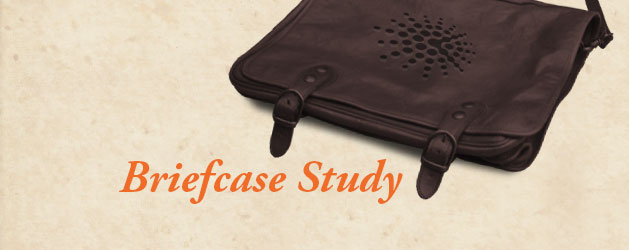Each issue of The Steward will include a brief case study. In it, strategies will be highlighted that we utilize in solving problems and creating opportunities for our clients. We hope you’ll enjoy this case study and find some wisdom in it that may help you in your own planning.
This past month has been bittersweet for us here in the office. I have had the opportunity to meet with several widows to assist them in their planning. On one hand, it is truly an honor to play a part in guiding someone through the planning process toward a new, more worry-free financial reality. On the other hand, hearing the stories of how their husbands passed away and to feel the tangible grief that still exists is admittedly quite difficult. Out of deep respect for those who shared their story, I’m thankful for their openness and I hope we can somehow benefit others through their experiences.
Typically, widows are interested in a few specific things:
- They want to know if we can help them make sure they are on the right track to be “okay”
- They usually ask if we are able to tell them if they are getting good advice from the advisor that their husband used
- They want to know if there is any way that we can simplify what they have
The timing of this process is different for everyone and it quite frankly depends on a lot of factors. For some, when the letters and account statements begin arriving in the mail, the need for help is immediate. For others, they’re willing to navigate the process until another life event causes them to reach out for assistance. It may be their own retirement looming or a sketchy piece of advice from their current advisor that prompts a second opinion. When it’s time, it’s time. Having candid and thorough discussions about all of the various accounts and creating a plan to manage them effectively can make a significant difference in overall emotional health.
What I often see is a large amount of cash that has not been given a specific purpose. Often the proceeds from a life insurance policy, this money provides great comfort for a grieving person. Knowing that the money is “in the bank” is a necessary tool for coping with grief. When the timing is right, developing a plan for utilizing that money is often what prompts a widow to take action. Additionally, stock market investments (mutual funds, variable annuities, IRA’s, etc.) are often scattered among multiple financial institutions and advisors and are lacking any clear strategy. That can result in higher-than-necessary fees and risks unknown. When these accounts are viewed together, a lack of purpose for the respective accounts often causes the person to feel that some money is too safe and other money is too risky. Even though there may be some diversification, the unknowns can create significant stress.
So what should be done?
If you’ll recall from last month’s Steward, the way forward begins with asking “What is the purpose of this money?” This will quickly help clarify objectives and help us align the accounts in a way that brings significant and much needed peace of mind. Let me offer an example. So many times, I will be presented with a Variable Annuity statement, followed by a comment such as: “We put money in this because it has a guarantee of 5%.” While that may be true if you intend to convert that entire account to a lifetime income stream, not using it in such a way makes that guarantee a mirage. The underlying account is fully exposed to a stock market decline and the fees for such an account can range from 3-1/2% to over 5% per year for the guarantee that is not likely to be used.
In this example, simply deciding how the money is to be used can result in a significant annual cost savings of thousands of dollars.
No matter the purpose behind the investment, as we continue through the process of reviewing each account, clarity begins to develop, confidence grows, peace of mind emerges. From there, we can develop a prudent strategy for making the best use of the money that can create a lifetime of financial security. For a person who has dealt with so much pain and grief, progress toward financial clarity can be immeasurably meaningful. The key is to instill the money with purpose.
If you made it this far, you probably realized that the same process a widow must engage in applies to everyone. Yes, the principles are exactly the same, the tools often very similar, though the life circumstances may be slightly different. No matter where you are in your planning process, please do not wait until tragedy strikes to find the peace that’s available through this planning process.
We call it our Four Dimension Review Process, you may call it sleep-filled nights. Either way, please contact us for yourself or a friend who may be in need of a helping hand or simply a second opinion. You – and they – deserve no less than a peaceful and confident retirement.
To set up an appointment, call us at (419) 931-0704 or email Dave@FourthDimensionFinancial.com. Start now – find the clarity you deserve.


